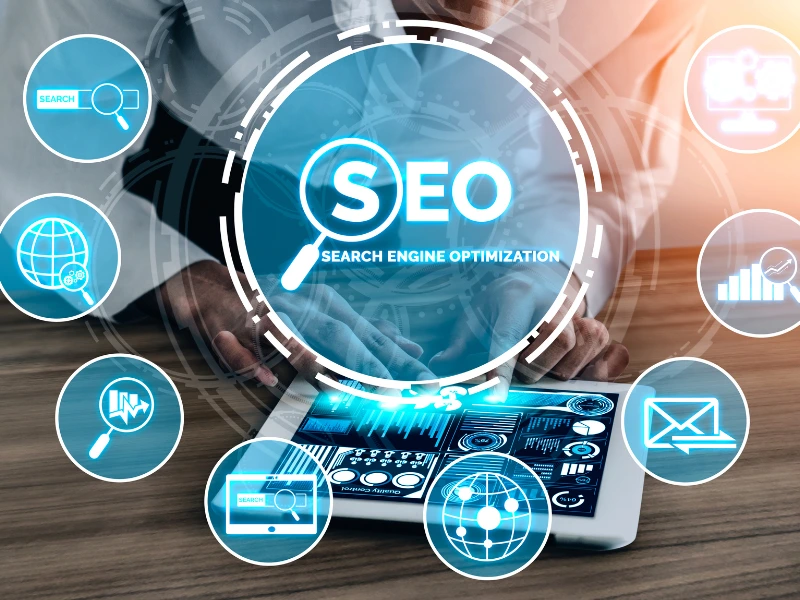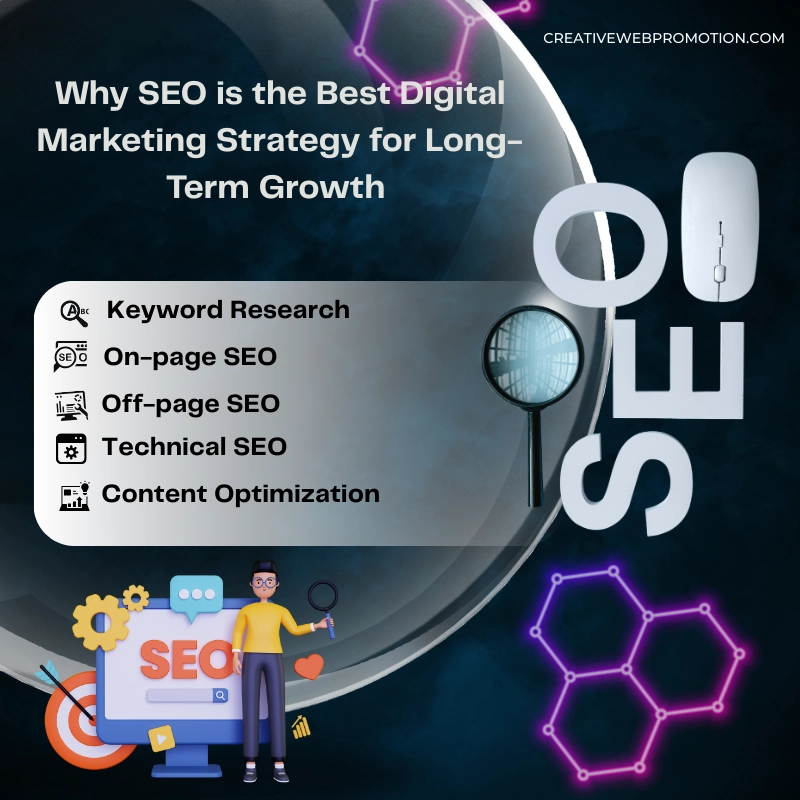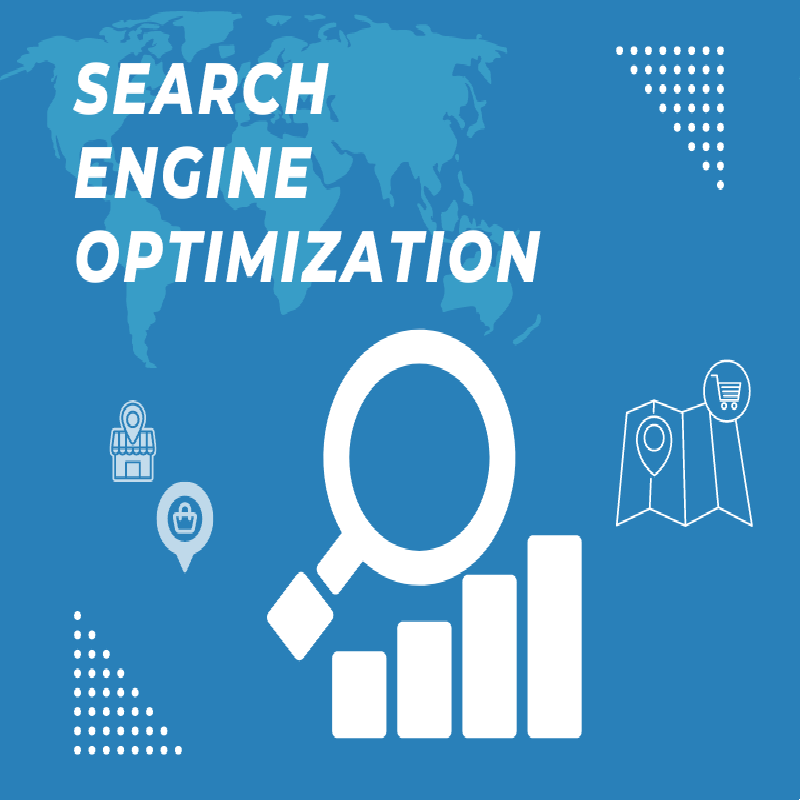On-Page SEO vs Off-Page SEO – Key Differences and Best Practices
In the world of Digital Marketing, businesses compete fiercely to gain visibility and attract their target audience. One of the most powerful tools to achieve this is SEO (Search Engine Optimization) — a strategy that improves your website’s presence on search engines like Google. But within SEO, two distinct pillars define how well your website performs: On-Page SEO and Off-Page SEO.
At Creative Web Promotion, we specialize in crafting balanced SEO strategies that focus on both aspects to help businesses dominate search rankings. Understanding the difference between On-Page and Off-Page SEO — and how they complement each other — is key to achieving long-term success online.
What is SEO and Why Does it Matter?
SEO, or Search Engine Optimization, is the process of optimizing your website so that it ranks higher in organic (non-paid) search results. Unlike paid ads, SEO provides sustainable visibility and consistent traffic over time.
At Creative Web Promotion, our comprehensive SEO Services are designed to increase your website’s authority, improve its structure, and enhance content quality to attract the right audience. When executed effectively, SEO drives qualified leads, builds brand credibility, and boosts conversions — all without relying on constant ad spend.
However, for SEO to truly work, both On-Page and Off-Page SEO strategies must be aligned.
Understanding On-Page SEO
On-Page SEO focuses on everything you can control directly on your website to improve its performance and visibility. It involves optimizing individual pages so search engines can easily understand and rank them for relevant keywords.
Key Elements of On-Page SEO Include:
1. High-Quality Content:
Content remains king in SEO. Creating valuable, informative, and keyword-optimized content ensures that users find what they are looking for. At Creative Web Promotion, we help brands craft SEO-friendly content that not only ranks but converts.
2. Keyword Optimization:
Using targeted keywords in titles, meta descriptions, headers, and body text helps search engines understand your topic relevance. The goal is to balance keyword density while maintaining a natural reading flow.
3. Meta Tags and Descriptions:
A well-crafted title tag and meta description improve click-through rates and visibility on search results.
4. URL Structure:
Clean, descriptive URLs enhance SEO performance and make it easier for search engines to index pages.
5. Internal Linking:
Linking related pages within your site helps both users and search engines navigate your content efficiently.
6. Mobile Responsiveness:
With most traffic coming from smartphones, mobile optimization is essential. Google prioritizes mobile-friendly websites in its rankings.
7. Page Load Speed:
Faster websites offer better user experiences. Creative Web Promotion emphasizes speed optimization as part of our SEO Services to reduce bounce rates and improve engagement.
8. Image Optimization:
Properly naming, compressing, and tagging images with alt text improves visibility in image searches and boosts overall SEO.
On-Page SEO lays the foundation of a well-structured, search-friendly website. But to strengthen your website’s authority and visibility, you need the support of Off-Page SEO.
Understanding Off-Page SEO
While On-Page SEO deals with elements within your website, Off-Page SEO focuses on activities outside your website that influence how search engines and users perceive your credibility and authority.
Key Components of Off-Page SEO Include:
1. Backlink Building:
Backlinks are links from other websites pointing to your content. High-quality backlinks signal trustworthiness and authority to Google. At Creative Web Promotion, we focus on ethical, white-hat link-building strategies that improve rankings sustainably.
2. Social Media Marketing:
Active social media engagement increases brand awareness, drives traffic, and indirectly supports your SEO efforts.
3. Guest Posting and Content Outreach:
Publishing articles on reputable platforms helps generate backlinks and exposes your brand to new audiences.
4. Influencer Collaborations:
Partnering with industry influencers can boost visibility and brand trust, driving organic interest in your site.
5. Local SEO & Citations:
Listing your business in local directories and maintaining consistent NAP (Name, Address, Phone) information improves local visibility, especially for service-based companies.
6. Online Reputation Management:
Reviews, testimonials, and mentions contribute to your brand’s authority. A strong reputation signals reliability to both users and search engines.
Off-Page SEO is about building your brand’s reputation and trust across the web. When combined with a solid On-Page strategy, it creates a strong SEO framework that drives measurable business growth.
On-Page SEO vs Off-Page SEO: Key Differences
To understand how both contribute to overall performance, here’s a clear comparison:
| Aspect | On-Page SEO | Off-Page SEO |
|---|---|---|
| Focus Area | Inside the website | Outside the website |
| Primary Goal | Optimize site structure and content | Build authority and credibility |
| Main Activities | Keyword optimization, meta tags, internal links, and content creation | Backlinks, social sharing, outreach, and reputation management |
| Control | Full control (by site owner) | Partial control (external factors) |
| Impact | Improves relevance and user experience | Improves authority and trustworthiness |
Both On-Page and Off-Page SEO are interconnected — one enhances visibility, while the other builds authority. Together, they define the success of your Search Engine Optimization strategy.
Best Practices to Combine On-Page and Off-Page SEO
For a complete SEO strategy, both On-Page and Off-Page tactics must work hand-in-hand. Here’s how Creative Web Promotion ensures success:
- Perform a Complete SEO Audit: Identify issues with site structure, speed, and backlinks.
- Create High-Quality Content: Publish content that attracts natural backlinks and social shares.
- Leverage Technical SEO: Optimize site code, schema, and performance for higher crawlability.
- Build Strong Relationships: Partner with trusted websites for quality link-building.
- Track and Measure: Use analytics tools to monitor rankings, traffic, and engagement regularly.
When executed together, these efforts enhance both your website’s relevance and authority — driving long-term digital growth.
Conclusion
Both On-Page SEO and Off-Page SEO are vital for achieving a robust Search Engine Optimization strategy. While On-Page focuses on perfecting your website from within, Off-Page strengthens your brand’s reputation across the digital ecosystem.
At Creative Web Promotion, our SEO Services are built around balance — we integrate content, performance, and outreach strategies to help your business dominate search results. By combining technical expertise with strategic Digital Marketing, we empower brands to achieve higher rankings, stronger visibility, and sustainable growth.
If you want to build an SEO strategy that works in the long run, partner with Creative Web Promotion — where visibility meets value.
Categories:




